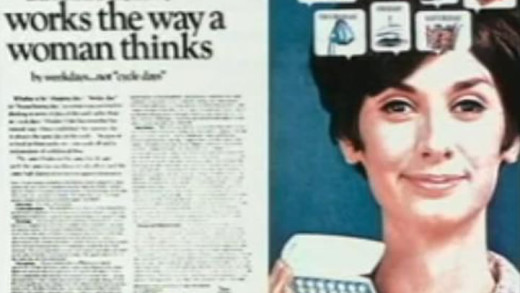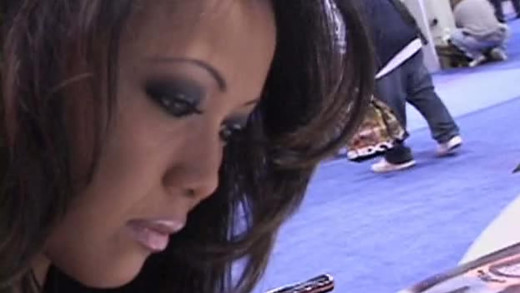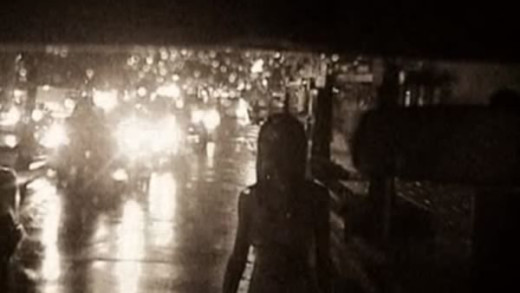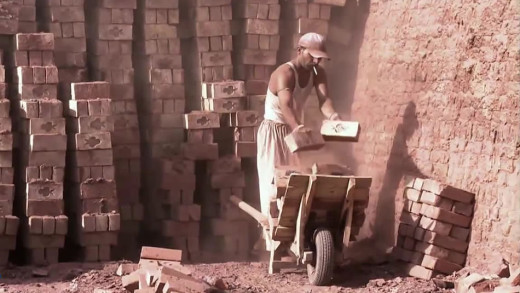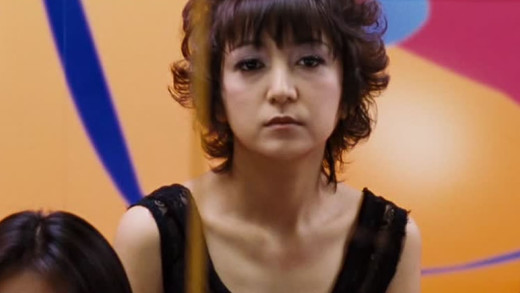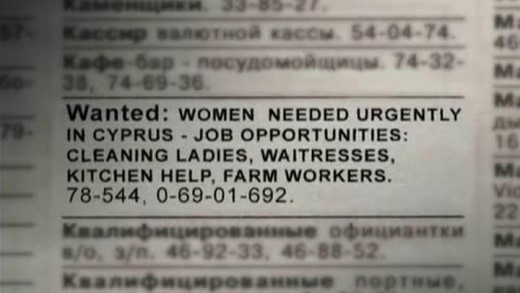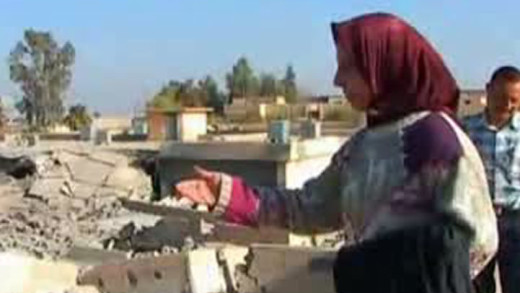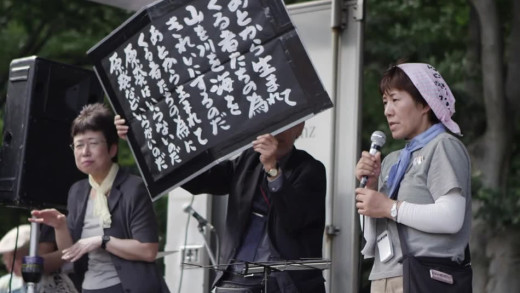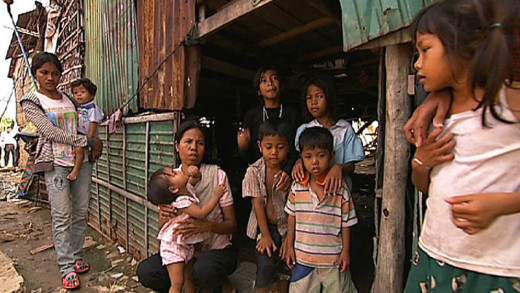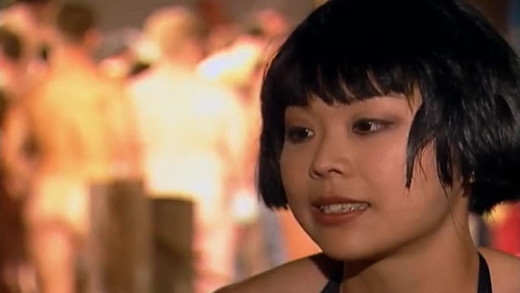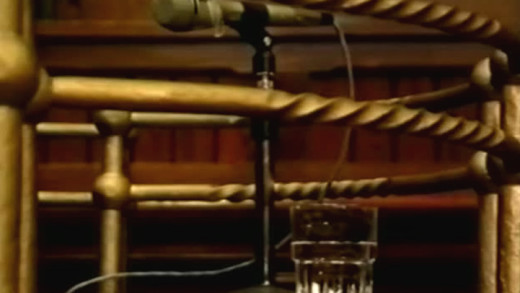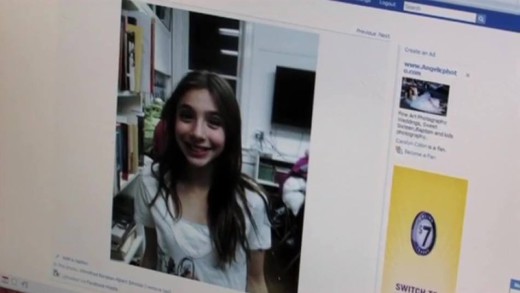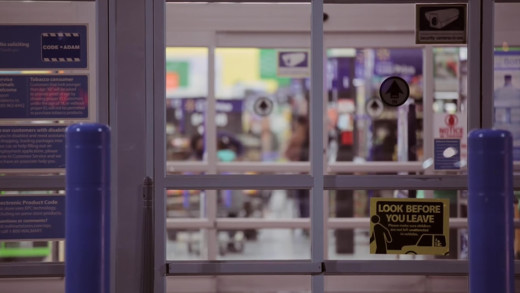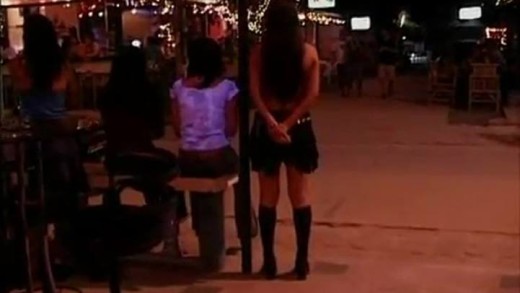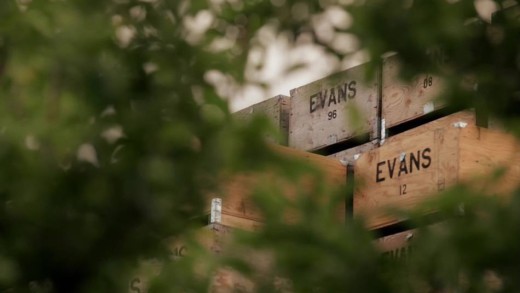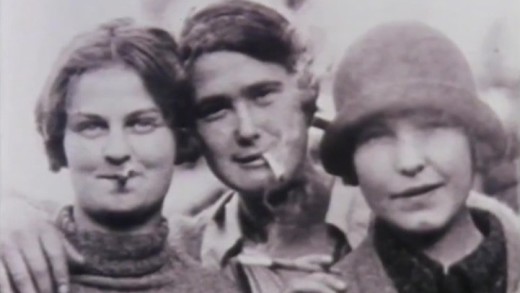Author and activist Jean Kilbourne analyses the depiction of women in advertising and media by decoding a large array of print and television ads. What is revealed is a torrent of stereotypes; sexist and misogynistic images and messages; laying bare a world of frighteningly thin women in positions of subservience; collectively, the restrictive code of femininity that works to undermine girls and women in the real world. By examining these messages, Killing Us Softly asks us to take advertising seriously, and to think critically about its relationship to sexism, eating disorders, violence against women, popular culture, and contemporary politics.
The Dark Side of Porn is a six part series of films that each examine an aspect of the modern porn industry. Using specific examples of films, and by speaking directly with former performers, filmmakers and families themselves; the series of films journey through the firsthand and often unseen issues that are pervasive to modern pornography--such as STIs, the use and abuse of relationships, rape, human trafficking, the recruitment process, and the seen and unseen cultural impacts of films such as Deep Throat and Emmanuelle, to name a few. Consequently, this series offers a disturbing account of the tip of the iceberg of modern mainstream pornography...
What stories do contemporary music videos tell about girls, women, boys, men, sexuality and gender? What are the cultural values portrayed? And from whose perspective? Dreamworlds encourages viewers to consider how these narratives shape individual and cultural attitudes about sexuality. Illustrated with hundreds of examples, the film accounts both the continuing influence of music videos and how popular culture generally filters the identities of young men and women through a narrow and dangerous set of myths about sexuality and gender; asking viewers to re-look at the images that have been normalised and meanings taken for granted throughout popular culture...
Once relegated to the margins of society, pornography is now the most pervasive and visible aspect of popular culture, assuming an unprecedented role in media as its content becomes more harsh and extreme, racist and abusive. This eye-opening and disturbing film moves beyond frivolous "liberal versus conservative" debate and tackles the real issues surrounding pornography by placing the voices of performers themselves, producers and critics directly alongside the observations of women and men as they candidly discuss the role porn has played in shaping their sexual imaginations and relationships. The Price Of Pleasure reveals a nuanced portrait of how pleasure and pain, commerce and power, freedom and responsibility have become extremely twisted by popular culture, usurping the most intimate area of our lives.
As an exposé of human trafficking, Very Young Girls follows a group of adolescent African-American girls who were seduced, abused and sold on New York's streets by pimps, having survived the life to share their story. Each recount their experiences, captured alongside startling footage shot by the brazen pimps themselves, giving a rare glimpse into how the cycle of street life begins for many women. Following the work of Rachel Lloyd and the journey each go through to exit their life on the streets, Very Young Girls portrays first-hand the occurrences of human trafficking throughout the United States.
Far from ending with the abolition of slavery, the trade in human beings is thriving more than ever before. Today, 27 million men, women and children are held, sold and trafficked as slaves throughout the world. From the sex slaves of Eastern Europe to China's prison labour slaves; from Brazil's hellish charcoal slave camps to entire families enslaved in Pakistan's brick kilns, this series exposes the people behind modern slavery and the companies who profit from it.
In a visual exploration of institutionalised prostitution, Whores' Glory travels the globe to show how these people really live and work today, across three economically divergent countries. In Bangkok, Thailand, women punch a clock and wait for clients inside a brightly-lit glass box. In the red-light district of Faridpur, Bangladesh, a madam trafficker haggles over the price of a teenage girl. On the border town of Reynosa, Mexico, crack-addictions run high while women pray to 'Lady Death.' Whores' Glory is a unobscured look at the realities of sex-trafficking today and the industry that continues to spawns it and keep it alive.
Sex Slaves documents an extraordinary journey deep into the world of sex trafficking from the perspective of Viorel--a young man trying to find his wife Katia who was four months' pregnant when she left home looking for a job. Along the way, the production team takes a rare, hidden-camera look at various traffickers, pimps and middlemen who buy and sell hundreds of thousands of women each year. Lured by traffickers who prey on their dreams of employment abroad, many of the women are then kidnapped and "exported" to Europe, the Middle East, the United States and elsewhere. During this process, they are sold to pimps, locked in brothels, drugged, terrorised and raped repeatedly. In Eastern Europe, sex trafficking has become the fastest growing form of organised crime, with Moldova and Ukraine widely seen as major suppliers of women into the global sex trade...
Demand investigates the commercial sex trade, across four countries: The United States, Netherlands, Japan, and Jamaica. The film reveals a harrowing first-hand account of the impact of soaring consumer demand for vulnerable women and children, to be victimised in sex trafficking markets. By exploring the entrenched connections of pornography, to widespread sexual assault, to a pervasive globalised human trafficking market, Demand questions the conditions that keep the inertia of the commercial sex trade roaring across the globe...
The United States heralded many grandiose promises of freedom and equal rights as they invaded Iraq. But still years on from the invasion, the reality of everyday life for women inside Iraq is of course a different story. To make this film, two Iraqi women risk their lives to spend three months travelling all over the country with a camera to record the lives and experiences of women they meet. Iraq -- The Women's Story provides a compelling account of a life inside Iraq that is never seen on news bulletins...
Ever since three reactors went into meltdown at the Fukushima Daiichi Nuclear Power Plant in 2011; a broad, disparate, anti-nuclear movement is growing in Japan. Nowhere is that more apparent, perhaps, than in Fukushima prefecture, where a group of local women boldly protest the deafening silence of the Japanese government over the worst nuclear accident of this century. Largely ignored by their own media, these brave women brush aside cultural shyness and share their honest views on the state of the cleanup, the cover-ups, the untruths and the stagnant political climate in today’s Japan...
We Will Not Be Moved documents the unpredictable reality for thousands of Cambodia's poor that are being forcibly evicted from their houses in the name of urban development. Cambodia's land ownership was thrown into chaos when Pol Pot's Khmer Rouge extinguished private title but now money and corruption are playing havoc with the country's attempts to bring back private property. There is one brave group known as the BK13--a group of 13 women--that are not prepared to let greedy developers take the very, very little they have. But with half a million residents forcibly evicted in recent years, it's an enormous fight they have on their hands...
During a ten-hour period in January 1995, Annabel Chong had sex with 251 men in front of cameras. The event was a world record and the resulting video sold more than 40,000 copies, starting a trend of record-breaking gang-bang pornography. Chong states that she intended for this act to "challenge the notion of women as passive sex objects," and added, "I wanted to take on the role of the stud. The more [partners], the better." Sex: The Annabel Chong Story revisits the story of that day and connects it to Chong's life as a student and as the daughter of a middle-class Chinese couple in Singapore. She talks about her decisions, and the film also follows her to an AIDS test after the world-record-setting recording where she also self-harmed and was never paid the $10,000 she was promised. The film closes on route home to Singapore, where Chong visits her parents who do not know about her dealings with the porn world, while friends and professors do. Should she tell her mother?
Between 1999 and 2000, nearly 8,000 women reported a rape to the police. Out of those women, 90 per cent identified their attacker, and DNA evidence helped place the accused at the scene of the crime. But the admission of a prior relationship with the perpetrator counted against the victim. In any case, the conviction rate for rape is unbelievably low—only nine convictions for every 100 cases reported. Film-maker Rachel Coughlan follows the heart-wrenching stories of five women to win their fight for justice, showing in the process the systematic failures of the legal system in why such cases—the ones that do even make it to court—often don't result in conviction.
An ex-pornstar, a 12 year old girl, and a 22 year old who yearns for the 'normal' genitals as seen in porn movies, are just some of whom are chronicled in Sexy Baby to draw together how the current relentless culture of pornography, social media and popular culture are deeply and profoundly affecting the lives women and girls. Based on intimate and candid conversations with kids in middle school classrooms, suburban shopping malls, nightclubs, college dorms, and high school house parties, the film chronicles trends among small town and big city kids--the pervasive culture affects everyone, everywhere. Most youngsters know someone who has emailed or texted a naked photo of themselves. Many kids have accidentally or intentionally had their first introduction to sex be via hardcore pornography online. Facebook has created an arena where kids compete to be "liked" and constantly worry about what image to portray. Much of what was once private is now made public. The list goes on. Sexy Baby is a powerful indictment of the Internet age and the hyper-sexualised culture affecting women and girls everywhere, as well as an insight into the struggle of parents navigating this new culture, wanting what is best for their kids and the generations to come.
Rape on the Night Shift is a harrowing investigation into the rampant sexual abuse of the many thousands of unseen women who clean the shopping centres, banks and offices of some of the largest companies throughout the United States. The cleaning companies and contractors themselves are some of the largest companies throughout the country and the world. This report follows a prior investigation about systemic abuse of migrant women working in America's fruit and vegetable fields, as well as packing plants and industry. Both set out to document the many aspects of a booming rape culture, driven in part by the synergy of a failure of criminal prosecutions, the legal system, a culture of pornography, the realities for migrant workers, and a perfect storm for human trafficking.
With its tropical beaches and buzzing nightlife, the island of Koh Samui in the Gulf of Thailand attracts many hundreds of thousands of tourists each year. The island is renowned in the West for sex tourism, and every year many male tourists form relationships with women working in the bars of Koh Samui. But how does this work? And what dynamics are at play? Love Me Long Time is a film that speaks to the men that travel back and forth to Thailand for these holiday romances that are for sale in a country ravaged by the oppression of the west, human trafficking and prostitution driven by poverty. Do these men know what they're doing?
Rape in The Fields is the first part of a year-long reporting effort into the systemic abuse of migrant women working in the fruit and vegetable fields, packing plants and industry of the United States. The film travels from the almond groves of California's Central Valley to the packing plants of Iowa, from the apple orchards of Washington's Yakima Valley to the tomato fields of Florida, speaking with dozens of women who have been sexually assaulted and abused on the job. What is shown is that in the vast fields and orchards of today's vast agribusiness, it's easy for a rapist to stalk his victims, and the systems function in such a way to protect the rapist, rather than the workers. Many workers are also immigrants who dare not even denounce their attackers for fear they'll be deported. The situation on the whole is rife for ensuring abuses. A Human Rights Watch report published in May of 2014 found that rape and other forms of sexual abuse and harassment of female workers was a common problem. This report sets out to shed a light on that problem and expose the new-style slavery and abuse of workers that still continues to this day.
Made over five years, with contributions from hundreds of women and over 200 Australian films, For Love or Money is a pictorial account of women's history in Australia over the past decades. The film chronicles the cycles of women's gains and losses as they are moved in and out of the workforce according to demands of the age, revealing how women's unpaid and voluntary work over the years has kept and continues to keep an entire system running smoothly, both in peacetime and in war. In this culture, women do the work that is never paid or still not even recognised as real work. This film shows how this system determines the kinds of jobs women do in the paid workforce--the low-paid, low-status jobs--and how women have fought and organised for equality and wage justice for over a century. For Love or Money remains relevant today as women continue the unfinished campaigns for equal pay, maternity leave and childcare, and still carry the major responsibility for caring and nurturing in the culture of individualism.
